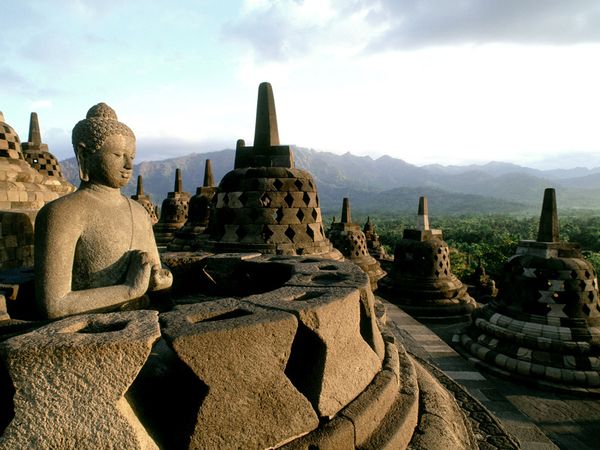
Are pharma firms facing regulatory hurdles in Indonesia?
The lifesciences industry in the Asia Pacific (APAC) region offers huge opportunities for companies, which are looking for growth. Regulatory approvals often act as hurdles for these firms in the APAC region. BioSpectrum speaks to individuals from the industry and regulatory professionals from Indonesia, in order to compile a guide on the regulatory processes in the country. (Also read during this week: Regulatory requirements in China, Taiwan, Australia, Hong Kong, India, Singapore and Korea)
In Indonesia the National Agency of Drug and Food Control (NA-DFC) is responsible for regulating pharmaceuticals products and drugs in Indonesia. Primary functions of NA-DFC include pre-market evaluation of medical products, legislation, regulation, standardization, and GMP certification.
The criteria and guidelines for registration in Indonesia were last updated in 2011. It is based on assessment of the drug's risk, quality, safety and efficacy and need of people. The drug registration application in Indonesia can only be done by pharmaceutical companies located in Indonesia through a pre-registration process, which takes around 40 working days. It involves consultation on completeness of registration dossier and document and registration fees.
Another important organization that plays a key role in the regulatory processes in
Indonesia is the National Committee on Drug Evaluation. It consists of experts in the field of clinical pharmacology, pharmacy, biology and relevant clinicians recruited from universities and other relevant institutions.
Timeline for evaluation
It takes 40 working days for export-only products and for minor variation that need approval from the authority. It takes 100 working days for life-saving drugs, orphan drugs, drugs for national program, drug development and all clinical trials in Indonesia, and copy drugs with electronic standardized information.
It takes 150 working days for drugs that have been marketed in countries which have implemented harmonized evaluation system, for new indications which have been marketed in the countries that have implemented harmonized evaluation system and copy drugs without electronic standardized system.
Furthermore, it takes 300 working days for new drugs, biological products and similar biotherapeutic products not included in the list of 100 working days and 150 working days.
Criteria of drug evaluation
Drugs are evaluated in Indonesia based on risk assessment. Efficacy and safety of non-clinical studies and clinical studies for phase I, II , III need to be established. Quality is assessed in manufacturing process according to GMP, product specification, stability study and bioequivalent study for generic products and product information and labelling information need to be correct and ensure rational use of drug.
Risk-based review
Review of a pharmaceutical product involves its safety and efficacy aspect. It should be scientific and evidence-based, demonstrating compliance in preclinical studies, product development and clinical protocol design. It also involves the quality aspect where standardization and control on specification and method of analysis of active ingredient and finished products is done.
Moreover, there should be control on production process and it should follow good manufacturing practises that ensure safety and consistency. Promotion and labelling of the product need to be done according to the approved product information rational.
Quality requirements
In order to support the quality of the drug, the applicant has to provide the drug master file for new chemical entity, first generic drugs, and generics drugs for life-saving and serious illnesses, such as cancer, cardiovascular diseases and antibiotic drugs. Also, on-site evaluation at the facility of product manufacturer is done to ensure the validity of information written in documents of quality.
Crietria for imported drugs
Imported drugs are limited to drugs for public health program, new innovated drugs that are under patent protection and drugs that are needed but not feasible to be produced locally.
It covers manufacturing technology and facility not available in Indonesia, manufacturing capacities insufficient to fulfil national need, economically not feasible production in Indonesia due to low need and produced through centralized system by foreign pharmaceutical industry which has investments in Indonesia, supported by balance of import and export activity.
Applicant pharmaceutical companies in Indonesia need to have written authorization from the manufacturer abroad. Manufacturers need to have manufacturing licenses and meetGMP requirements as proven by valid GMP certificate and also carry data of the last inspection within the last two years of application. Applicant has to submit latest master file documents if the manufacturer has not had any product with the same dosage form authorized to be marketed in Indonesia and if the manufacturer has product with the same dosage form authorized to be marketed in Indonesia, but there is a change of production facilities. Moreover, if site master file evaluation result requires evidence of compliance to GMP, then site inspection will be conducted.
(As shared by Ms Endang Woro Tedjowati, director, Drug and Biological Product Evaluation, NADFC-Indonesia, during the 'Pharmaceutical Regulatory Summit 'held in Singapore during August 2012. To know more about regulatory-related issues in Indonesia, visit www.pom.go.id)




